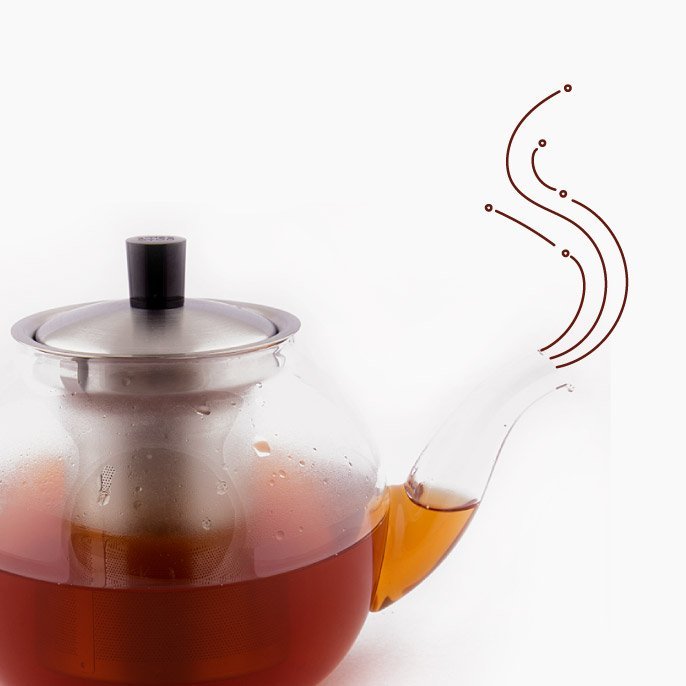
Welcome to Gold and Tea
The combination of the tea with 24k GOLD flakes makes a beautiful presentation.
What is Gold and Tea
Gold is an ancient symbol of prosperity, and adds significance to any special occasion.
The soft taste of our Tea creates a calm atmosphere, and gold flakes who move in the tea delight and occupy the mind. We hope you enjoy the beauty and taste of this special mixture of gold and our best tea.
High Quality

Pleasent Color
Natural products
Well Packed
Gluten Free
Free Chemicals
High Quality

Pleasant Colour
Natural products

Well Packed
Gluten Free
Free Chemicals
Our Products
Gold & Tea puts at your disposal five varieties of tea to enjoy tea with gold
Gyokuro Asahi is made only with the earliest leaf buds of the spring harvest in Japan.
More
Gyokuro Asahi
Milk Oolong tea is produced in the south of Fujian China.
More
Milk Oolong
Our Rooibos is produced in a small mountainous area in the region of the Western Cape
More
Rooibos
Our Earl grey is produced in Darjeeling
More
Earl Grey
Silver Needle is a white tea that grows in Fujian Province in China.
More
Silver Needle
Evidence-based health benefits
White tea
Rooibos
Green tea
Milk oolong
Black tea
- It’s rich in antioxidants. White tea is packed with polyphenols, which have antioxidant benefits. They help reduce chronic inflammation by protecting the body against damage from free radicals.
- May reduce the risk of heart disease. Polyphenols like those found in white tea may help relax blood vessels, boost immunity and prevent bad cholesterol from becoming oxidized. These factors may help lower the risk of heart disease.
- Could help you lose weight. White tea is a good source of caffeine and catechins like EGCG. These two compounds may have a synergistic effect that helps the body burn fat and boost metabolism.
- Help protect your teeth from bacteria. White tea is a great source of fluoride, catechins, and tannins. Several studies have shown that these compounds can help fight bacteria that cause plaque on teeth.
- Has compounds that may fight cancer. Test-tube studies have found that white tea extract suppressed several types of cancer cells and stopped them from spreading. However, more human research is needed.
- May lower the risk of insulin resistance, which is a harmful condition linked to many chronic diseases. Studies have shown that polyphenols like those found in white tea may lower the risk of insulin resistance and improve blood sugar control.
- Compounds in white tea may protect against osteoporosis. Osteoporosis is common among the elderly and may lead to fractures. Compounds found in white tea, including the polyphenols called catechins, may lower the risk of osteoporosis by promoting bone growth and suppressing bone breakdown.
- Low in tannins and free from caffeine and oxalic acid. Compared to regular black tea or green tea, rooibos is lower in tannins and free from caffeine and oxalic acid.
- Packed with antioxidants. Rooibos is full of health-promoting antioxidants. However, these antioxidants may be unstable or inefficiently absorbed by your body.
- May boost heart health. Rooibos may benefit heart health by positively affecting blood pressure. It may also lower “bad” LDL cholesterol and raise “good” HDL cholesterol in those at risk of heart disease.
- May reduce cancer risk. Certain antioxidants in rooibos have been shown to kill cancer cells and prevent tumour growth in test tubes. However, no human studies have confirmed these effects.
- May benefit people with type 2 diabetes. Animal studies suggest that specific antioxidants in Rooibos can help balance blood sugar and improve insulin resistance. However, human research is necessary.
- Green tea contains bioactive compounds that improve health. Green tea is loaded with polyphenol antioxidants, including catechins called EGCG. These antioxidants can have various beneficial effects on health.
- Compounds in green tea can improve brain function and make you smarter. Green tea contains less caffeine than coffee, but enough to produce an effect. It also contains the amino acid L-theanine, which can work synergistically with caffeine to improve brain function.
- Green tea increases fat burning and improves physical performance. Green tea has been shown to boost the metabolic rate and increase fat burning in the short term, although not all studies agree.
- Antioxidants in green tea may lower your risk of some types of cancer. Green tea has powerful antioxidants that may protect against cancer. Multiple studies show that green tea drinkers have a lower risk of various types of cancer.
- Green tea may protect your brain in old age, lowering your risk of Alzheimer’s and Parkinson’s. The bioactive compounds in green tea can have various protective effects on the brain. They may reduce the risk of both Alzheimer’s and Parkinson’s, the two most common neurodegenerative disorders.
- Green tea can kill bacteria, which improves dental health and lowers your risk of infection- The catechins in green tea may inhibit the growth of bacteria and some viruses. This can lower the risk of infections and lead to improvements in dental health, a lower risk of caries and reduce bad breath.
1 Nutrients in Oolong tea. In addition to caffeine, oolong tea contains vitamins, minerals, amino acids, and beneficial tea polyphenol antioxidants.
2 Oolong tea may help prevent diabetes. The polyphenol antioxidants may help maintain normal blood sugar levels and decrease the risk of developing type 2 diabetes. However, the evidence is mixed and more research is needed.
3 Oolong tea may improve heart health. Oolong tea may help decrease the risk of heart disease, stroke and high blood pressure in some people.
4 Oolong tea may help you lose weight. The combination of caffeine and polyphenols found in oolong tea may help increase the number of calories and fat burned each day. This could ultimately help speed up weight loss.
5 May protect against certain cancers. Similar to green and black tea, oolong tea may have protective effects against cancer.
6 Oolong tea may help increase bone mineral density, it may also strengthen tooth enamel and reduce the formation of dental plaque.
- Has antioxidant properties. Black tea contains a group of polyphenols that have antioxidant properties. Consuming antioxidants may help decrease the risk of chronic disease and improve your overall health
- Black tea contains flavonoids, which are beneficial for heart health. Studies have found that regularly drinking black tea may help reduce the risk of heart disease.
- May lower “bad” LDL cholesterol, LDL and HDL are two types of lipoproteins that carry cholesterol throughout the body. Too much LDL in the body can increase the risk of heart disease and stroke. Studies have found that black tea may help reduce LDL levels.
- May improve gut health. The gut houses trillions of bacteria and the majority of your immune system. Polyphenols and antimicrobial properties found in black tea may help improve gut health and immunity.
- May help reduce blood pressure. High blood pressure can cause many health complications. Drinking black tea on a regular basis may help decrease systolic and diastolic blood pressure, but research is mixed.
- May help reduce the risk of stroke. Stroke is the second leading cause of death globally. Fortunately, in many cases, it can be prevented. Studies have found that black tea may help reduce the risk of stroke.

What our Client Says
Fulfilled my order quickly and efficiently,kept me informed of my parcel of teas progress & delivered speedily & on time,excellent,thank you

Great company, a wonderful selection of teas, well-packaged delivery, great communication throughout.

Yes I would purchase again and also recommend them to others. I had never seen before this kind of product. We loved it!!!!

